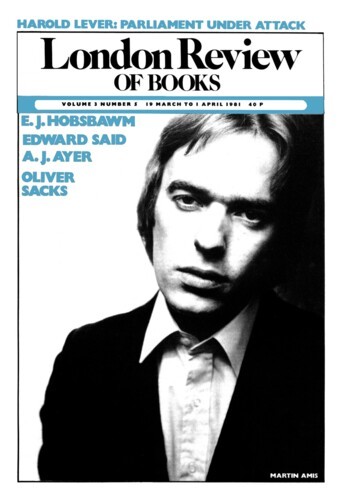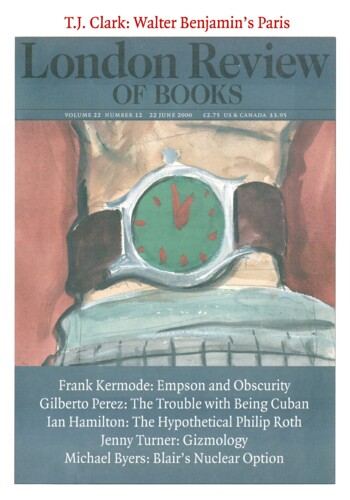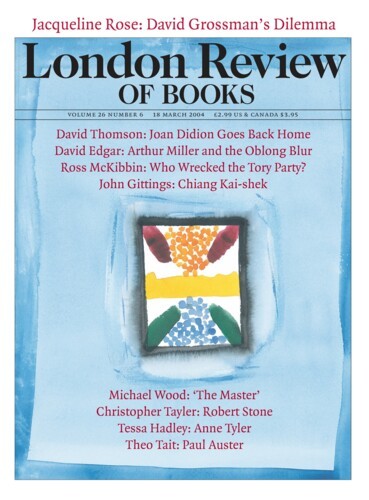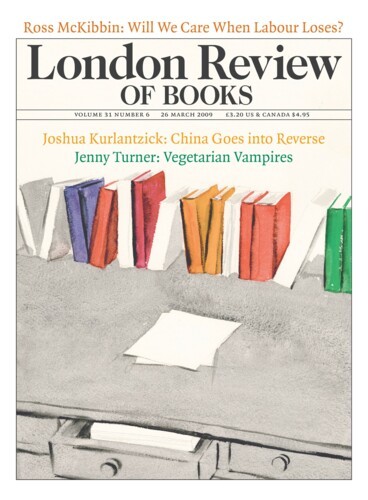The Nephew
David Thomson, 19 March 1981
This book suggests how an odd mixture of Hungarian nerve, social bluff and show-business instinct once commanded the British cinema. In Michael Korda’s telling, however, the panorama of picture-making is not always alight with understanding or information. The author may have been born on the night in 1933 when his uncle Alexander Korda’s first great success, The Private Life of Henry VIII, opened, and that could have made Michael a good-luck charm in Alex’s eyes. But Michael is neither a film buff nor a historian of the movies. He is, instead, that vital figure in the picture business, a nephew, half-English, half-American, and in his dreams entirely Hungarian. He grew up enthralled by his uncle Alex: he can only provide a fond and rather vague sketch of his father, Vincent, and a perfunctory one of his other uncle, Zoltan. The lives of the title are not three but two: uncle and nephew, the last tycoon and the ardent imitator. The extraordinary interest and appeal of this book spring from the way Michael Korda always wanted to be his own uncle.





